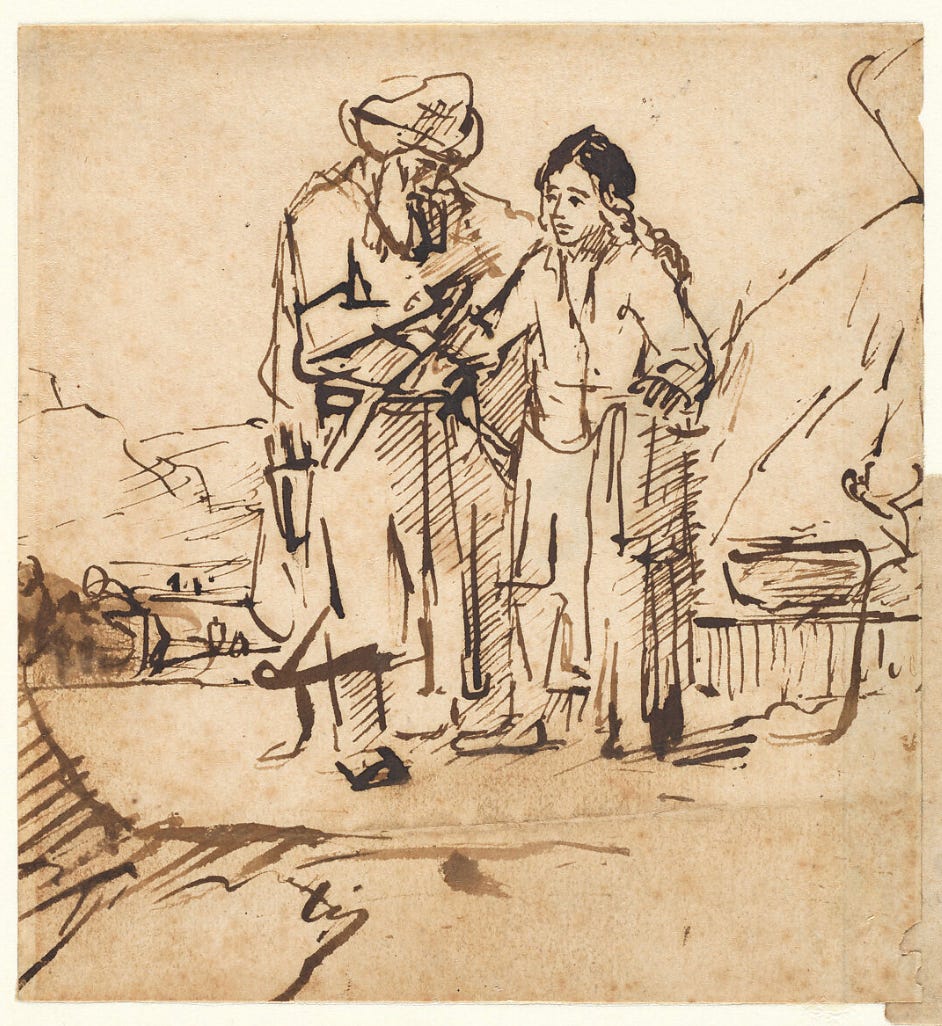What we got wrong about Abraham and Isaac
Scripture is not a story of humans laying their lives down for God, but God laying his life down for us.
Public Theology is based on the work of Zach W. Lambert, Pastor of Restore, an inclusive church in Austin, Texas. He and his wife, Amy Lambert, contribute to and moderate this account. Zach’s first book, Better Ways to Read the Bible, is now available wherever books are sold.
All of the content available at Public Theology is for those who identify as Christian, as well as those who might be interested in learning about a more inclusive, kind, thoughtful Christianity. To receive new posts and support the work, consider becoming a free or paid subscriber.
We are happy to cover subscription costs for anyone who needs it but can’t afford it at this time. If you would like to join the Public Theology community and gain access to our paid subscriber content (which we keep behind a paywall for the privacy and connection of our community) but cannot afford to do so, please message Amy Lambert directly.
We’re glad you’re here.
The story of Abraham and Isaac is a wild one. Even if you haven’t spent much time in church, chances are that you’re familiar with the story: God calls Abraham to take his son, Isaac, to a mountain where he will sacrifice him to God. (I told you it was wild.)
Some of you also know that I have two biological sons— and we were foster parents to three other boys for a couple of years— but I don’t talk about them much online for three reasons:
They are their own people with their own lives and their own faith journeys. They aren’t props or fodder for sermon illustrations, and I know how damaging it can be when pastors use their children in this way.
Not everyone is a parent, and being a parent (or not being a parent) can be incredibly complex and layered.
I want to keep my kids offline and safe to the greatest extent possible.
But this week’s story from Scripture centers on a father and son in a way that really affected me as I studied it, so if you’ll permit me, I’m going to talk a little bit about what being a dad has been like for me.
When our oldest son was born, I fell in love with him in a way I didn’t know was possible. When I held him for the first time, I felt a myriad of emotions, but the most unexpected one I felt was fear.
I remember thinking, “Why am I so afraid of this tiny baby?” I quickly realized that I wasn’t afraid of him, I was afraid for him. I was afraid of the responsibility I now carried as his parent. If you have ever loved someone who completely relies on you for support, you know the feeling I’m talking about. You would do absolutely anything to make sure they are safe.
I also remember getting ready to leave the hospital with him the day after Amy gave birth. We were 25 years old and he was 1 day old. I couldn’t believe they were actually going to let us take him home without adult supervision. I brought it up to the nurse and she was like, “You’ll be fine!” but I didn’t believe her.
Fast forward four years and we were at one of his soccer games. I was holding our youngest son, just a couple of months old at the time, and Amy was trying to keep our foster son, two years old, busy. A few minutes into the game, our son scored a goal and he was so excited. He ran back down the field with his arms in the air as we all cheered for him. But a kid on the other team ran up behind him and pushed him in the back. Hard. Our guy never saw it coming.
Before I knew what was happening, I was halfway onto the field with a baby on my hip, ready to defend my four-year-old from his four-year-old attacker. Thankfully, I quickly realized how ridiculous I was being. I was so embarrassed that I pretended to tell the referee, a preteen, something about a previous call.
My guess is that you know exactly why I ran out on that field. As absurd as it was, there is something in us that drives us to protect the people we love at all costs, especially the children in our care. Now sometimes that drive gets twisted due to trauma or mental illness, but I honestly believe that fierce protective love is given to us by God.
But what would you do if God was the one your child needed protection from? What would you do if God told you not only to step aside from your role as protector, but actually commanded you to harm your child?
That’s the subject of our story today, the story of Abraham and Isaac found in Genesis chapter twenty-two. I want to preface this one as it isn’t easy to interpret. Rabbis, pastors, and scholars from both Judaism and Christianity have been trying to faithfully figure it out for thousands of years.
Keep reading with a 7-day free trial
Subscribe to Public Theology with Zach W. Lambert to keep reading this post and get 7 days of free access to the full post archives.



